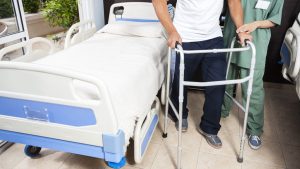Module Two of the Grenfell Tower inquiry wrapped up a couple of weeks ago. The fire disaster in London, U.K. took 72 lives back in 2017. The Celotex RS5000 insulation that was used in combination with the (ACM) cladding on the building exterior has been blamed for the rapid spread of the fire.
Although survivors of the fire have demanded criminal charges, inquiry witnesses have been granted immunity. As a result, testimony from those involved in the material selection processes have exposed vulnerabilities in human behaviour called “error traps” that might not otherwise have been uncovered.
Psychology Prof. James Reason explains how “error traps” can both occur and be avoided when individuals or organizations are faced with decisions. It’s a matter of defensive layering.
“In an ideal world each defensive layer would be intact,” he writes. “In reality, however, they are more like slices of Swiss cheese, having many holes.”
Although the holes in each layer constantly open and close, it is when they all line up that truly bad outcomes can occur.
Reason describes two types of potential failures: active and latent. It’s the latent failures that the Grenfell inquiry has exposed and a resultant poisoned decision-making culture.
“Latent conditions are the inevitable ‘resident pathogens’ within the system,” explains Reason. “They arise from decisions made by designers, builders, procedure writers, and top level management.”
These conditions can become part of a corporate culture, undiscovered for years, until triggered by an actual event. The Grenfell Tower fire is an excellent example.
For example, the inquiry heard that in February 2014, U.K.-based international façade and cladding manufacturer Kingspan conducted fire tests on Celotex FR5000 insulation to determine its suitability for highrise buildings. This was prior to the installation of any ACM cladding on the Grenfell Tower.
The product failed the tests badly.
The insulation was simply rebranded and remarketed as Celotex RS5000. Its use was then somehow permitted. It was later learned, however, that new fire tests were “rigged” by combining RS5000 insulation with a non-combustible magnesium oxide board.
This was the start of many decisions that would result in a decision-making breakdown, as described above by Reason.
“I went along with a lot of actions at Celotex that, looking back on reflection, were completely unethical,” said Jonathan Roper, former product manager for Celotex. “I probably didn’t potentially consider the impact at the time.”
Nevertheless, Celotex continued to recommend RS5000 while also claiming that its marketing material clearly explained the basis on which it could be safely used in highrises. Celotex went even farther, assuring the Grenfell cladding subcontractor that RS5000 was suitable for the 24-storey building.
Paul Evans, the former head of marketing for Celotex, gave testimony demonstrating how even more layers of Reason’s Swiss cheese occurred.
When asked how such “thoroughly misleading” information could be allowed to be published, Evans told the inquiry, “Only by relying on other people to give information, and decisions have been made and things have been moved on which has led to us promoting the system this way.”
The inquiry also looked into the role played by Arconic, the multinational metals company that made and supplied the cladding sheets for Grenfell. The company claims it wasn’t responsible for how its cladding was used.
Yet, according to a BBC report, Arconic marketing manager Gerard Sonntag admitted this attending a talk given in 2007 by consultant Fred-Roderich Pohl. The risks of ACM cladding were dramatized by Pohl, saying it had the same “fuel power” as a 19,000-litre truck of oil. Despite this, Arconic continued selling the product.
The second module of the Grenfell inquiry has been riddled with testimony of this sort. Putting aside the shocking admissions coming from managerial levels across several companies, what is important are the lessons learned about corporate decision-making cultures.
Without a strong ethical foundation, Reason’s Swiss-cheese phenomenon can confound project processes, leading to accidents of the most serious and devastating nature.
John Bleasby is a Coldwater, Ont.-based freelance writer. Send comments and Legal Notes column ideas to editor@dailycommercialnews.com.









Recent Comments
comments for this post are closed